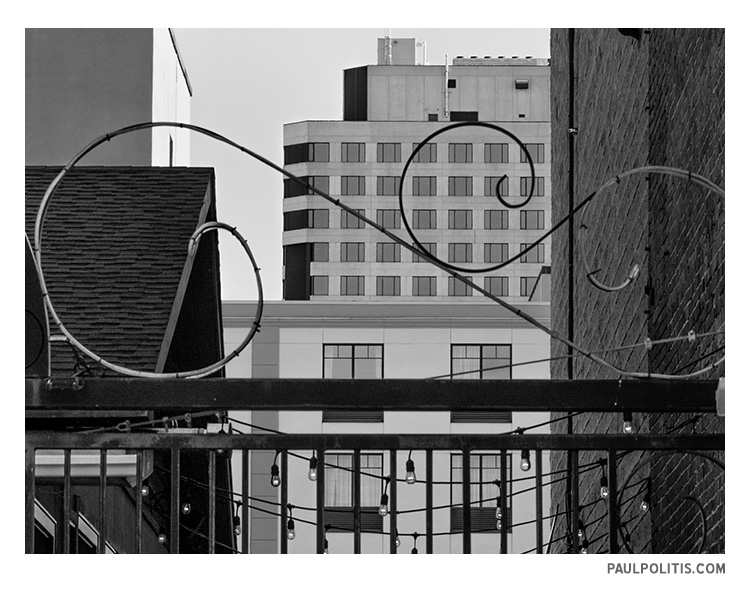
Some quotes I’ve collected from a book I’m reading, A Life of One’s Own, by Marion Milner.
Certainly I had never suspected that the key to my private reality might lie in so apparently simple a skill as the ability to let the senses roam unfettered by purposes. I began to wonder whether eyes and ears might not have a wisdom of their own.
…
So I began to have an idea of my life, not as the slow shaping of achievement to fit my preconceived purposes, but as the gradual discovery and growth of a purpose which I did not know.
…
In the first place, these sudden illuminations forced me to see that my preconceived ideas about ‘thought’ and ‘facts’ were quite inadequate. Slowly I realized that the facts were not separate things which were there for anyone to pick up, but an ever-changing pattern against a boundless background of the unknown, an immense kaleidoscope changing constantly according to the different ways you looked at it. They were not ‘given’ as in geometry, staying there at the top of the page while all you had to do was to argue about them, they were things which changed completely according to what one said about them, or the way one looked. Whether they had a substratum of reality in themselves or not did not concern me, I could leave that to the philosophers to argue about, but what appeared to me was a never-ending murmuring sea of space all about me, above my head, beneath my feet and on every side. Whatever happened, while awake I could never escape it. All I could do was to some extent make deliberate choice of the part of the sea I would look at and under my looking it at once took shape.
…
When I considered my observations in the light of this idea of wide and narrow attention, it occurred to me that there must be two quite different ways of perceiving. Only a tiny act of will was necessary in order to pass from one to the other, yet this act seemed sufficient to change the face of the world, to make boredom and weariness blossom into immeasurable contentment. (1) Narrow attention. – This first way of perceiving seemed to be the automatic one, the kind of attention which my mind gave to everyday affairs when it was left to itself. The psychology books seemed to agree in this. They said that you attend automatically to whatever interests you, whatever seems likely to serve your personal desires; but I could not find anywhere mentioned what seemed to me the most important fact about it, that this kind of attention has a narrow focus, by this means it selects what serves its immediate interests and ignores the rest. As far as I could see it was a ‘questing beast’, keeping its nose close down to the trail, running this way and that upon the scent, but blind to the wider surroundings. It saw items according to whether they served its purposes, saw them as a means to its own ends, not interested in them at all for their own sake. This attitude was probably essential for practical life, so I supposed that from the biological point of view it had to be one which came naturally to the mind. But since it saw everything in relation to something else, as a means to some end, contentment was always in the future. (2) Wide attention. – The second way of perceiving seemed to occur when the questing purposes were held in leash. Then, since one wanted nothing, there was no need to select one item to look at rather than another, so it became possible to look at the whole at once. To attend to something and yet want nothing from it, these seemed to be the essentials of the second way of perceiving. I thought that in the ordinary way when we want nothing from any object or situation we ignore it. Or if we are forced to attend to something which does not offer us any means of furthering our desires, then sheer habit makes us attend in the narrow focus way, looking at separate details and being bored. But if by chance we should have discovered the knack of holding wide our attention, then the magic thing happens.
***
I now thought I understood a little the exasperation of those Philistines who think that ecstatic enjoyment of pictures is sheer affectation. For if I had never happened to discover how to make this act of wide focus so that I could see the whole all at the same time, it would certainly have been affectation to stand for ten minutes in front of one picture and pretend I was not bored.
***
Now also it gradually occurred to me that expectancy might be an obstruction to one’s power of seeing which was particularly active in the sphere of emotion. It seemed inevitable that from romantic stories, plays, films, one should be always picking up, unknowingly, standards of what should be the ideal relationship between two people. I know I had once or twice found myself turning away discontented from what I had, because it was not what the romances had taught me to expect. Of course as soon as I really looked at the standard I was judging by I saw its absurdity and knew at once that real life was not like that; but it was a long time before I had realized that any standard was there.
